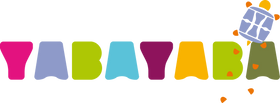Train in our Early Language and Literacy Program

The Early Language and Literacy (EL&L) Program empowers early childhood educators, school staff, parents and community members with clear, multisensory techniques and resources that can be incorporated into learning routines in school and home contexts. These lay the foundations for learning to read: oral language proficiency, phonemic awareness, print awareness, vocabulary development and early listening and reading comprehension.
The EL&L Program includes an ASQA21 accredited Certificate IV course, along with further workshops, resource development and ongoing mentoring for parents, community members, assistant teachers and educators. The NSW Quality Teaching Council (QTC) endorsed the EL&L Program as quality Professional Development at the Proficient Teacher level in both prior-to-school and school settings. EL&L aligns with the Early Years Learning Framework and National Curriculum, and is tailored to meet placed-based demands (e.g. Twin Language programs for communities with strong First Language practices).
The EL&L Program:
- Augments teacher/assistant teacher/child carer practices;
- Supports home/community skills, resources and confidence; and
- Creates a proactive pre-literacy aware and engaged community/school.
Community members, educators and family members are equipped with the required strategies, tools and resources to empower them to teach children foundational pre-literacy skills in the prior to school years and support classroom practice by using the EL&L Program as a standalone program or as a companion strategy to existing classroom programs. The program includes integrative pre- phonics practices that utilise high quality, culturally appropriate children’s literature, engaging resources (e.g. “Tommy Turtle”) and carefully designed games and activities.
Activities which contribute to oral language development correlate with features of the EL&L Program and include rich language experiences, joint dialogic talk between adult and child, and dialogic conversational reading and game-like activities mediated by structured talk. Activities that contribute to word reading skills include those which draw learners’ attention to the salient features of language and language-in-print. Development in reading skills often occurs from larger units to smaller units of sound,23 which is captured in the EL&L Program’s “7 Steps to Phonemic Awareness.”
Coding Aboriginal Languages for Indigenous Literacy (CALIL)
CALIL is an Australian Skills Quality Authority (ASQA) accredited program that equips community participants with the skills to collect, categorise and convert oral First Language elements into effective reading and writing resources. By converting oral First Languages into reading and writing courses, the local facilitators/teachers can provide teaching and learning skills and strategies that empower communities to teach their own children to read and write in their First Languages. Literacy in First Language(s) can also help children by giving them the skills to make comparisons and contrasts with English language and literacy.
Learning to Read and Write in First Language
Reading and Writing in First Language is perhaps best described as a method of decoding and encoding that teaches phonics, whole-word recognition and vocabulary through multisensory instruction. The Reading and Writing in First Language Course uses First Language resources collected through the CALIL program. The course teaches adults how to teach others (both children and other adults) to read in First Language. The course has a very practical, hands-on focus with emphasis on practicing the strategies, so that individuals can confidently work with others after the course has finished.
First Language (FL) Workshops
First Language Workshops are mini workshops designed to mentor and support First Language instructors by providing participants with strategies and resources that facilitate effective learning engagement and literacy acquisition. These workshops assist participants in reviewing and expanding their repertoire of teaching and learning strategies and in developing additional resources for language stimulation and literacy skill development. Please note that these programs are reading programs. Existing linguist and language worker documents that have previously recorded these languages are relied on in the development of reading resources.
NB: All EL&L training is presently being delivered by The Australian Literacy & Numeracy Foundation. For further information please contact info@alnf.org
